Are you looking to craft the perfect letter to request disability accommodations? It can be a daunting task, but we're here to guide you every step of the way. With the right approach and a clear template, you can effectively communicate your needs. Ready to dive into the details and learn how to make your request as smooth as possible?
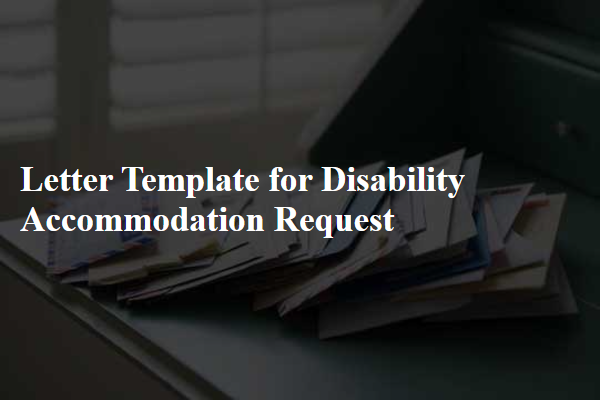
Personal Contact Information
In the process of requesting disability accommodations, it is crucial to provide thorough personal contact information to ensure clear communication. Key details include the full name, which identifies the individual accurately, and the primary address, including city and ZIP code, so that correspondence reaches the appropriate location. Additionally, a phone number, particularly a mobile line, allows for immediate communication and follow-up discussions. An email address, preferably one that is checked frequently, facilitates efficient exchanges of documentation and updates regarding the accommodation process. Including these elements promotes effective dialogue with the relevant institution, such as a university or workplace, and enhances the likelihood of a swift response to the accommodation request.
Detailed Description of Disability
Individuals with disabilities often face unique challenges that impact their daily functioning and quality of life. For instance, a person with cerebral palsy may experience difficulty with motor skills, resulting in challenges with mobility and coordination. This neurological disorder, which affects muscle control and movement, often requires specialized equipment, such as mobility aids like wheelchairs or walkers, to assist with physical mobility in various environments, including workplaces and educational settings. Additionally, someone with a cognitive disability, such as dyslexia, struggles with reading and processing written information, which may necessitate accommodations like assistive technology or modified instructional methods to facilitate learning and comprehension in academic settings, particularly in schools or universities. These disabilities can significantly affect an individual's ability to perform tasks that are considered typical in personal and professional contexts, warranting tailored support to ensure equal opportunities.
Specific Accommodation Request
Individuals with disabilities may require specific accommodations to ensure equitable access within various environments. When requesting accommodations, it is essential to clearly outline the nature of the disability, the specific modifications needed, such as wheelchair accessibility in public facilities, or alternative formats for learning materials in educational institutions. Statutory frameworks like the Americans with Disabilities Act (ADA) provide guidelines that protect the rights of individuals seeking such adjustments, promoting equal participation and reducing barriers. Contextual factors, including the type of disability, organizational policies, and regional regulations, significantly influence the accommodation process, necessitating proactive communication between the individual and the responsible entity.
Supporting Documentation
Individuals seeking disability accommodations must provide comprehensive supporting documentation to substantiate their request. This documentation typically includes medical records, detailing specific disabilities, limitations, and recommendations from healthcare professionals. Assessments from licensed psychologists or psychiatrists may further clarify the need for accommodations. Documentation should ideally be current (within the last year), align with relevant legislation such as the Americans with Disabilities Act (ADA), and clearly outline how the disability affects daily functioning within educational, workplace, or public environments. Additional evidence, such as Individualized Education Programs (IEPs), may also be beneficial in educational settings, emphasizing the necessity for tailored support.
Closing Statement and Contact Preferences
Individuals seeking disability accommodations often conclude their requests with a clear closing statement and preferences for further communication. A polite closing statement reinforces the importance of their request, showing appreciation for the recipient's consideration. It may include specific phrases such as "Thank you for your attention to this matter" or "I look forward to your prompt response." Contact preferences should specify the preferred communication methods, such as email or phone, along with availability times for discussions. Indicating a willingness to provide further information or documentation can also foster cooperation and understanding.
Letter Template For Disability Accommodation Request Samples
Letter template of formal request for disability accommodation in the workplace.
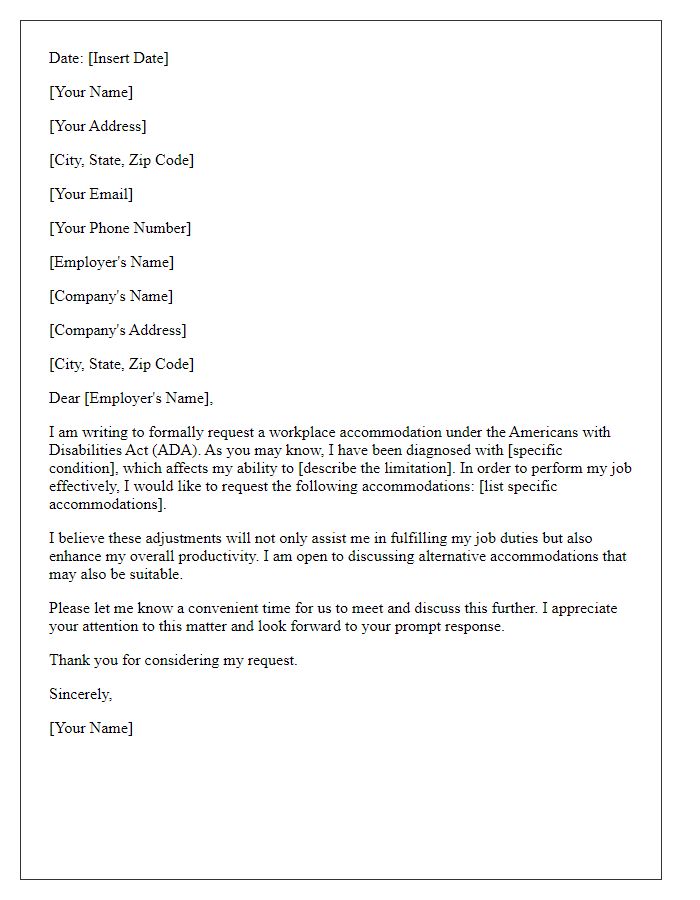
Letter template of accommodation request for students with disabilities.
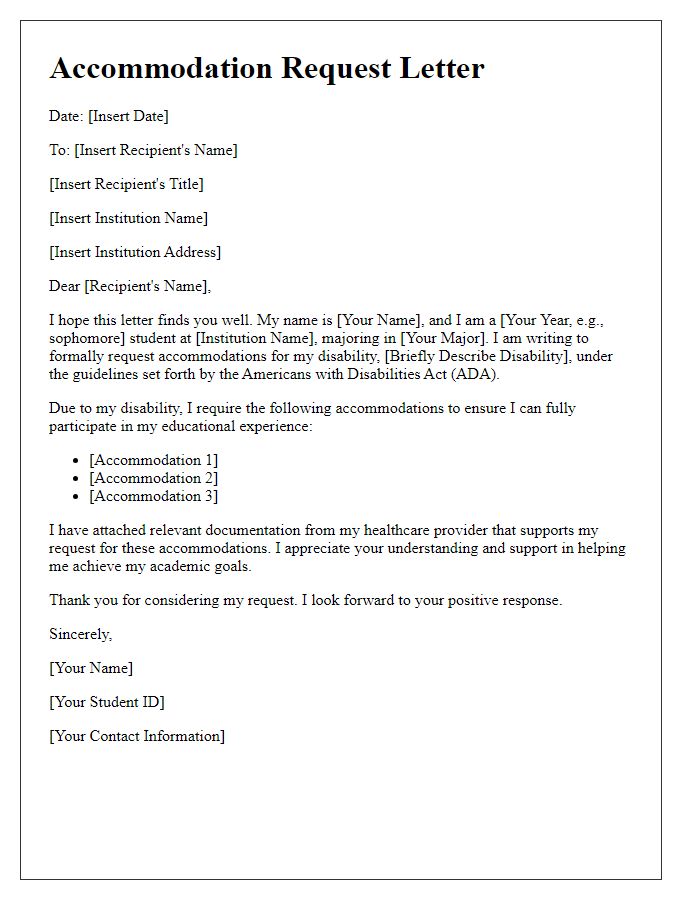
Letter template of request for reasonable modifications due to disability.
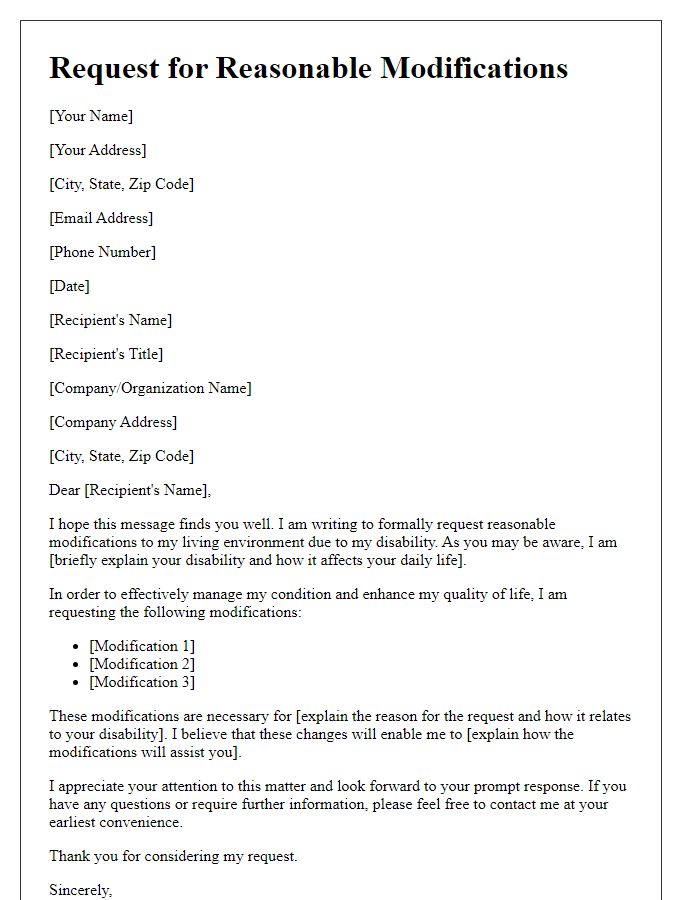
Letter template of family member support for disability accommodation request.
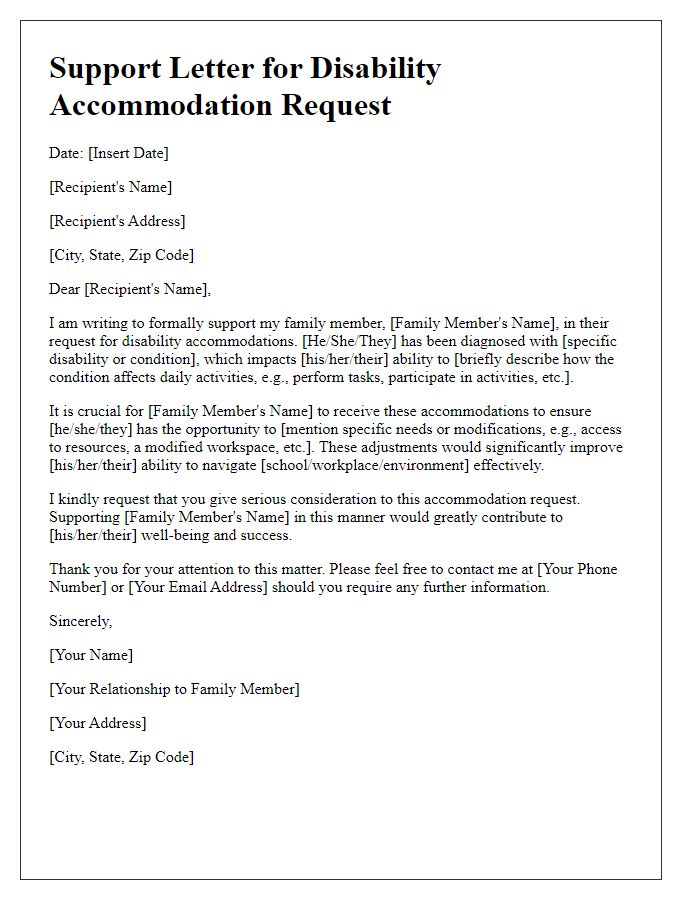
Letter template of medical professional recommendation for disability accommodations.
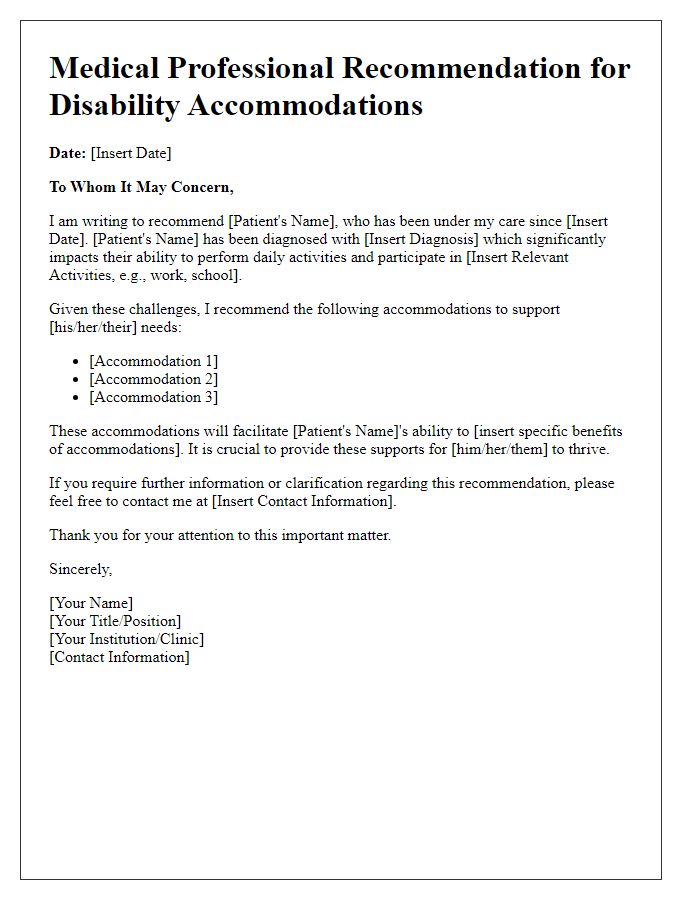
Letter template of disability accommodation inquiry for public services.
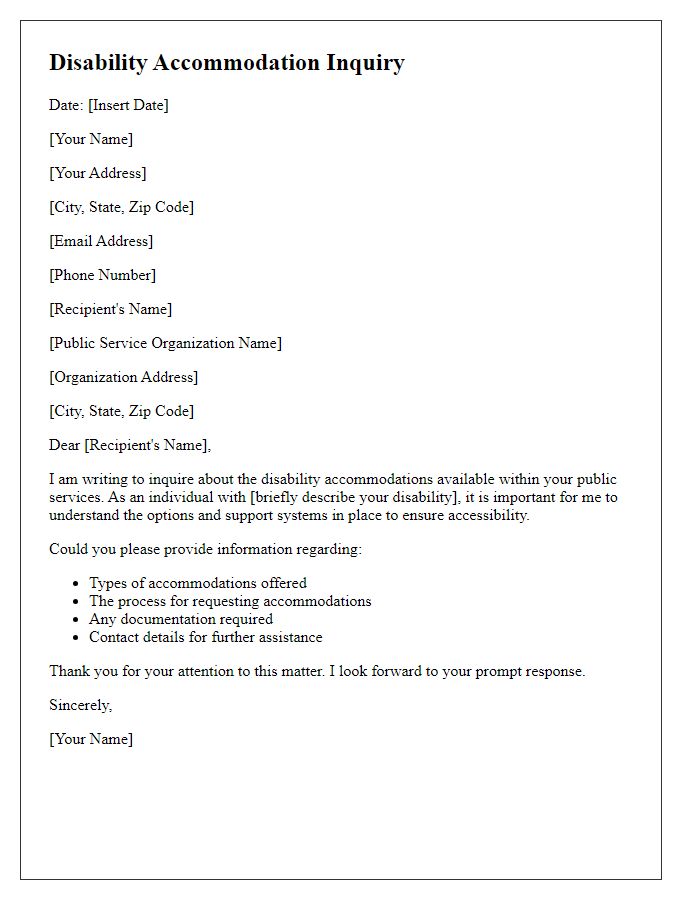
Letter template of follow-up on disability accommodation request status.
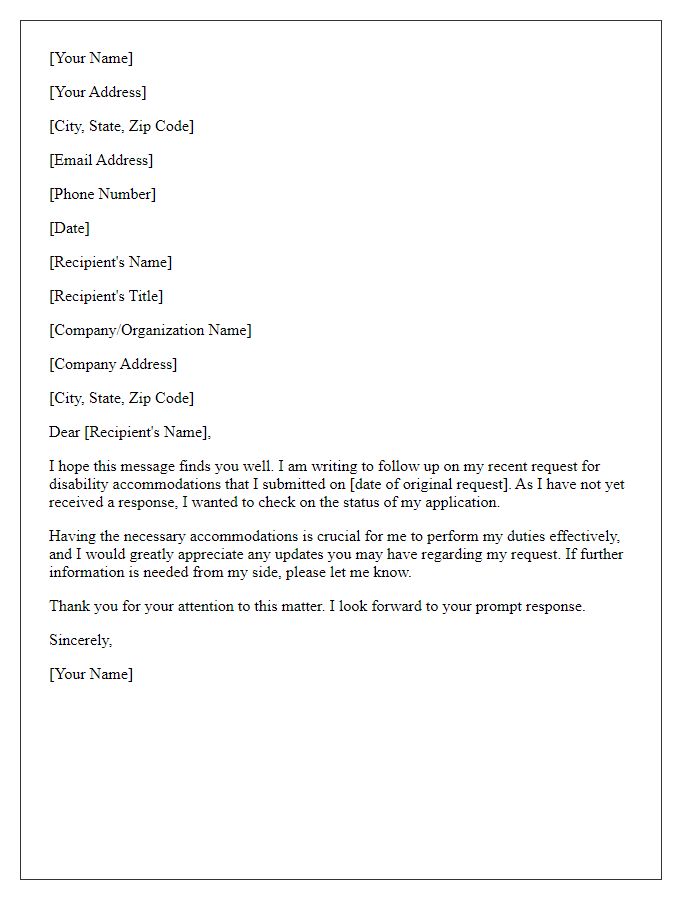

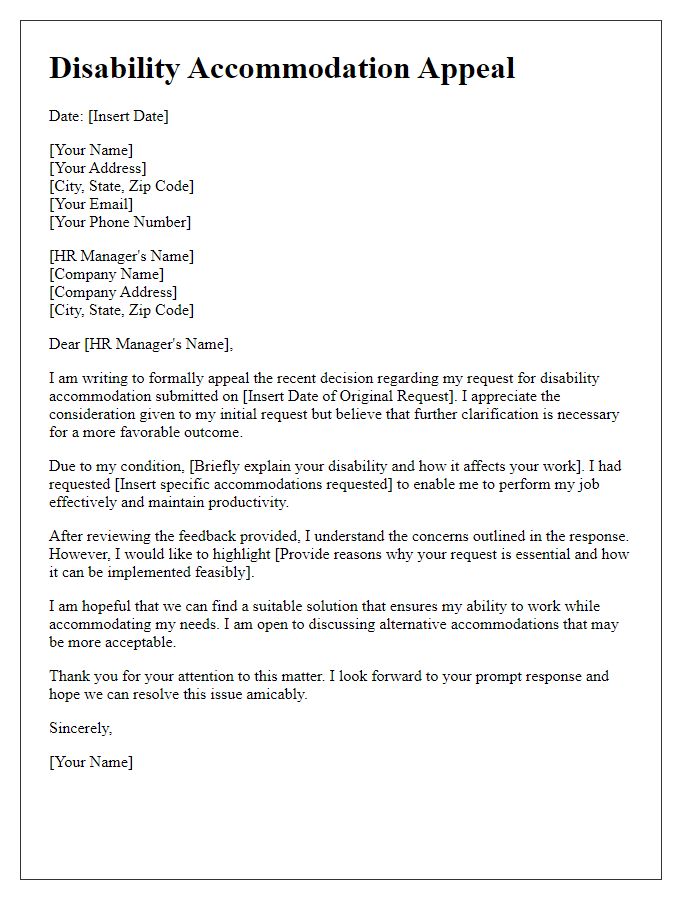
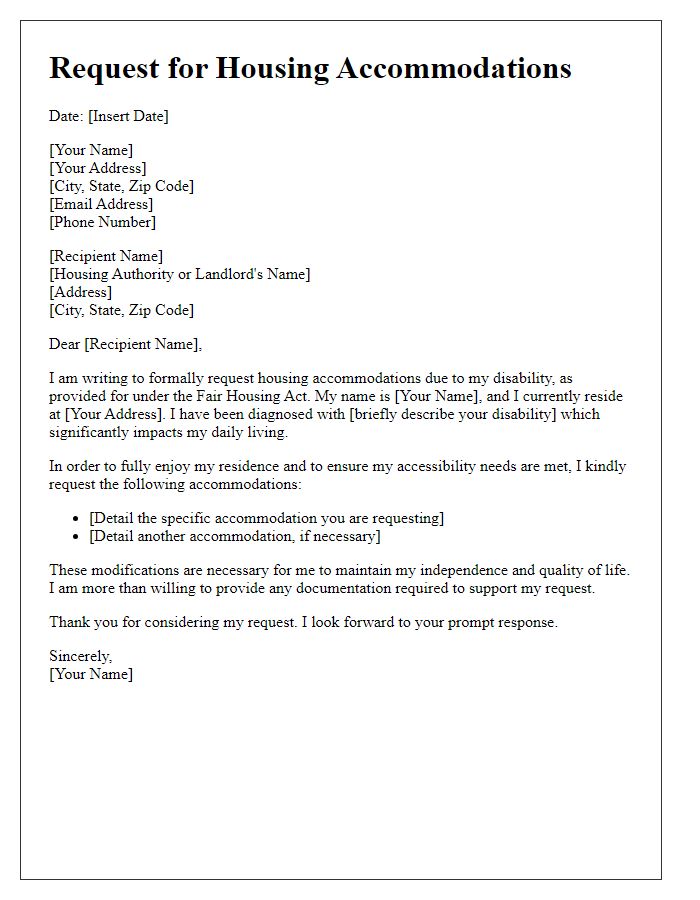
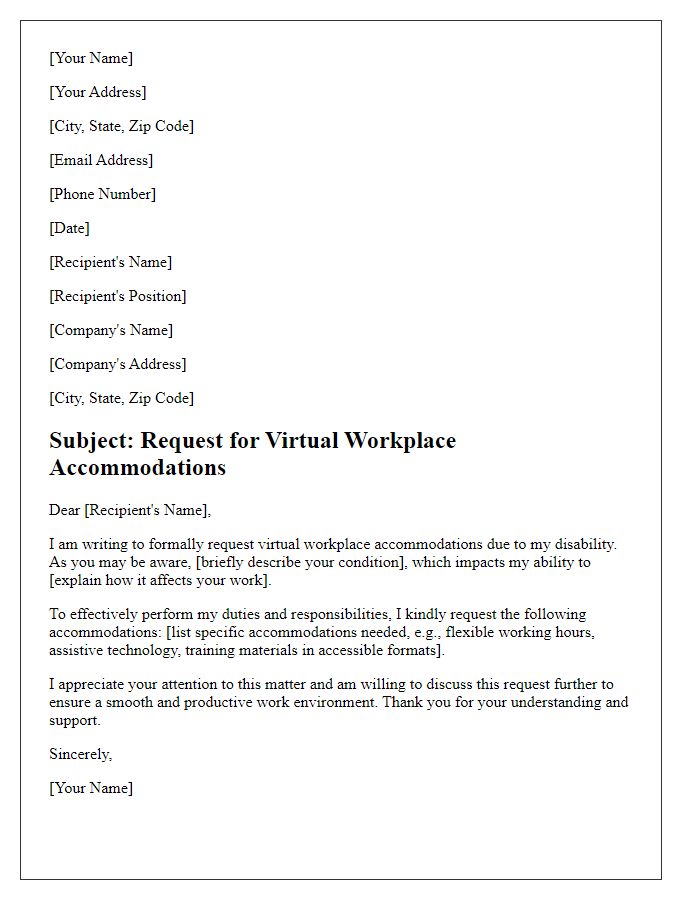


Comments